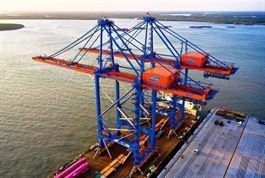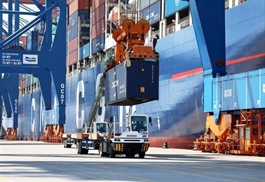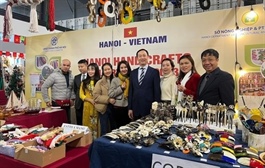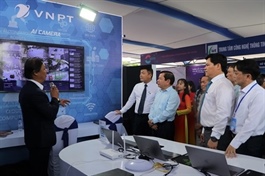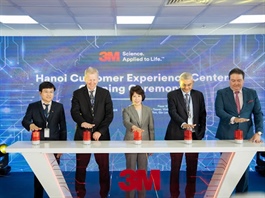Samsung plans to boost renewable energy adoption in Vietnam
Samsung plans to boost renewable energy adoption in Vietnam
The move would help contribute to Vietnam’s commitment to achieving net-zero greenhouse gas emissions by 2050.
Samsung Vietnam is seeking support from the Vietnamese Government to increase the use of renewable energy for production at competitive prices.
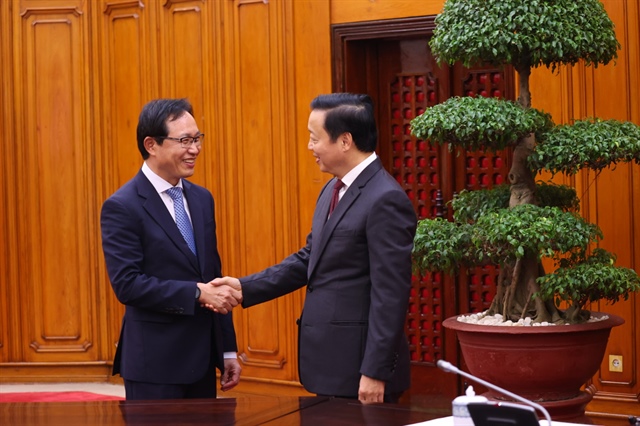
Deputy Prime Minister Tran Hong Ha (r) and General Director of Samsung Vietnam Choi Joo Ho. Photo: Minh Khoi |
General Director of Samsung Vietnam Choi Joo Ho revealed the plan during a meeting with Deputy Prime Minister Tran Hong Ha on August 12.
Choi praised the Vietnamese Government for issuing Decree 80, which establishes a mechanism for direct power purchase agreements (DPPA) between renewable energy producers and large electricity consumers. He emphasized that, based on this framework, Samsung Vietnam aims to increase the use of renewable energy in production, contributing to Vietnam's commitment to achieving net-zero greenhouse gas emissions by 2050.
For his part, Deputy Prime Minister Tran Hong Ha noted that following the implementation of the DPPA mechanism, the Prime Minister has directed the Ministry of Industry and Trade to review and establish criteria for selecting renewable energy projects connected to the national grid to be included in the Power Development Plan VIII implementation schedule.
“Projects that generate renewable energy without being connected to the national grid will not be subject to capacity caps,” Ha said.
He urged Samsung Vietnam to continue providing proposals and recommendations to address challenges in implementing the DPPA mechanism. The Deputy Prime Minister tasked the Ministry of Industry and Trade, the Electricity of Vietnam (EVN), and relevant ministries to work with Samsung Vietnam to address the concerns raised.
Ha reiterated Vietnam's commitment to support and encourage businesses in their green transition and emissions reduction efforts by establishing regulations on emission limits, carbon credit markets, and carbon taxes.
Earlier this year, major corporations such as Samsung, Apple, Heineken, and Nike sent letters to the Government and the Ministry of Industry and Trade expressing their interest in purchasing electricity from renewable energy projects through the DPPA mechanism, with a total demand of nearly 1,000 MW.
According to Decree 80, large electricity customers wishing to participate in the DPPA must be connected to a voltage level of 22kV or higher and consume an average of 200,000 kWh per month. Based on data from power companies, around 7,700 customers meet these criteria, accounting for approximately 40% of the country’s total electricity consumption. However, experts believe that direct power purchase projects through EVN's grid may not be operational until the end of 2025.
Samsung is currently Vietnam's largest foreign direct investor, with six manufacturing plants and a research and development (R&D) center, with a cumulative investment of $22.8 billion. In the first seven months of this year, the company exported goods worth $33.5 billion, marking a 5% increase compared to the same period last year, representing nearly 14.8% of Vietnam's total export turnover.
In the future, Deputy Prime Minister Tran Hong Ha encouraged Samsung to continue investing in R&D centers and to focus on emerging industries such as semiconductor manufacturing.
Earlier in July, during a meeting with Prime Minister Pham Minh Chinh in South Korea, Samsung Chairman Lee Jae Yong announced that the company would make significant investments over the next three years, aiming to transform its factories in Vietnam into the world’s largest display module manufacturing hub.







